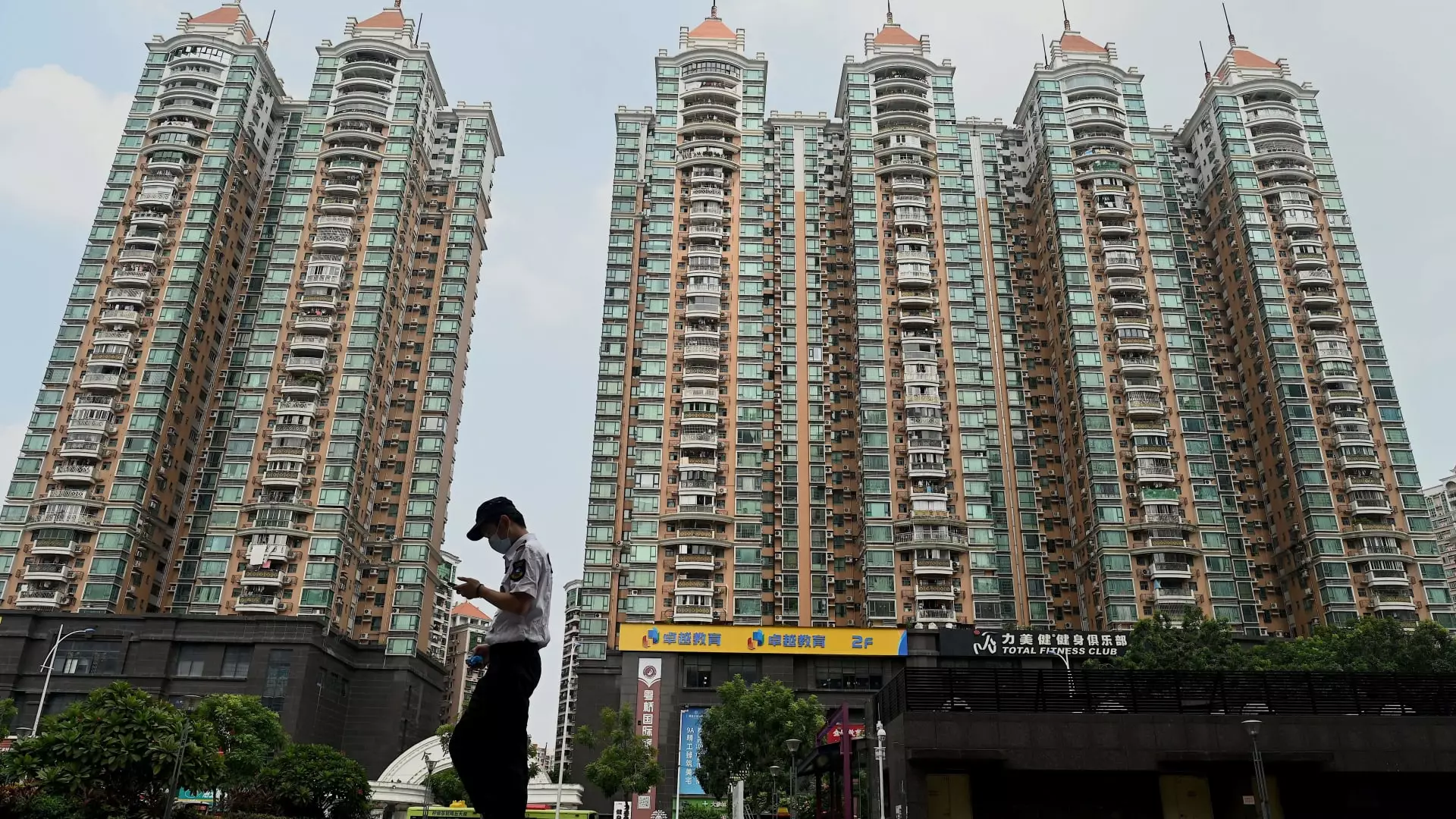The Chinese real estate market has seen a significant resurgence as cities implement policies aimed at rejuvenating homebuyer confidence. This wave of new measures follows a time of stagnation and declining market sentiment, largely stemming from Beijing’s previous regulatory crackdown on high-debt housing developments. The recent policy changes present an intriguing chapter in the story of China’s property development sector, setting the stage for a potentially brighter future amidst a challenging backdrop.
On a pivotal Monday, major cities such as Guangzhou, Shanghai, and Shenzhen rolled back stringent home purchasing restrictions that had long been in place. For example, migrant families in Guangzhou will no longer have to meet the requirement of tax payments or social insurance for six months to secure homeownership, thus eliminating significant barriers that hindered access for many. Similarly, Shanghai has slashed the time frame for tax-requirement compliance from three years to just one, a move expected to empower first-time homebuyers considerably.
Shenzhen’s adjustments also reflect this trend, allowing families to acquire additional residential properties and increasing the purchasing capacity for those with children. These changes are part of a broader strategy to stimulate the market in first-tier cities, recognized as essential for revitalizing not just local economies, but also contributing to the national economic recovery narrative touted by government officials.
The ripple effect of these policies was immediately felt in the stock market, with the Hang Seng Mainland Properties Index jumping by an impressive 8.36% on the same day. Real estate firms, such as Longfor Group and China Resources Land, saw their shares soar, indicative of renewed investor confidence fueled by government intervention. This response underscores the critical nature of policy frameworks in influencing market dynamics and restoring faith among both investors and potential homeowners.
Assessing the Impacts of Easing Measures
While these policy changes signal a proactive approach by authorities to stabilize the property market, analysts and economists remain cautiously optimistic regarding the breadth of their effectiveness. Allen Feng of Rhodium Group points out that while first-tier cities may see a notable uptick in property sales, the same measures might yield limited success in smaller cities plagued by a high inventory and weaker demand. Gary Ng of Natixis concurs, expressing skepticism that easing restrictions will significantly alter the landscape in less populated areas where market fundamentals remain shaky.
China’s property market has not rebounded in the way many expected despite previous measures to stimulate growth. The government’s assertion that it aims to “halt the real estate market decline” is rooted in both economic necessity and social stability. However, the magnitude of changes required to restore confidence remains daunting, particularly when considering that only a small fraction of new construction projects has reached completion amidst a national backlog.
In the wake of these policy changes, the Chinese government appears to recognize that sustaining momentum in the real estate sector will require more than just relaxed purchasing rules. Erica Tay from Maybank Investment Banking Group insists that the government must prioritize the completion of stalled housing projects to boost buyer confidence and effectively balance supply with demand. With only 4% of construction projects expected to be finished, comprehensive strategies are needed to revive a once-flourishing segment of the economy.
Moreover, the broader economic implications of revitalizing the property market cannot be overlooked. The real estate sector historically contributed significantly to China’s GDP, and its resurgence could potentially stimulate domestic consumption and economic growth overall. If executed thoughtfully, policies that not only revitalize sale potential but also prioritize consumer confidence and market stability could lay the groundwork for a conducive environment where both developers and buyers can thrive.
While the easing of home-purchase restrictions certainly indicates a shift toward a more supportive regulatory environment, the long-term health of China’s real estate sector will hinge on strategic execution and comprehensive reforms that address structural challenges. Policymakers face a complex path ahead, balancing immediate needs with the necessity for sustainable growth in a post-crisis landscape.

